Pre-budget week has been as we’d typically expect with organisations releasing a hoard of reports, evidence and lobbying papers aiming to influence Government funding decisions. We’ve summarised the main reports and added links for the reports which say similar things. Graduate outcomes and apprenticeships& technical education were the loudest shouters, and this week also saw University Mental Health day and the beginning of British Science Week.
Select Committees
All but one of the select committees has now confirmed their MP membership. You can see the members and brief details on the role and future outlook of the committees most relevant to BU in our committee special edition here.
Immigration
The Immigration Bill has now been published. Dods report that the Office for Budget Responsibility is preparing to downgrade the UK’s economic growth prospects in next week’s budget because of the country’s proposed post-Brexit “points” based immigration model. The OBR will forecast that a smaller population will lead to lower economic growth and detriment public finances, restricting the new Chancellor’s abilities to spend more money on key public services such as the NHS as well as the Government’s wider programme to “level up” the economy.
The economic impact of the new immigration system has led to tensions between the Treasury and Number 10 Downing Street. The Treasury favours a looser migration regime, without a cliff edge at the end of 2020, when the Brexit transition period ends.
Importantly, a reduction in migration rates have little to no effect on living standards because while economic growth might slow overall, gross domestic product per person was remain unchanged. The Migration Advisory Committee estimated a rise in GDP per person but added that this was very uncertain.
Science
Gavin Williamson and Business SoS Alok Sharma announced £179 million funding package for science, maths and engineering on Friday (which is the first day of British Science Week):
- £179 million for PhDs (up to 2,200 students) within the 40+ UK universities in Doctoral Training Partnership institutions. Students will commence 2020 and 2021 academic years within the subject areas of physical sciences, maths and engineering to develop the skills for ground-breaking research and high-tech industries like cyber security and chemical manufacturing. Part of the investment will go into pilots looking at how best to attract and support those from non-academic backgrounds to undertake this type of training.
- Encourage more young people, particularly girls, to study STEM subjects at school and university, and pursue a STEM-related career.
- £8.9 million to continue funding science education programmes including Science Learning Partnerships and Stimulating Physics Networks, which aim to improve science teaching and increase the take up of science at GCSE level and A level and ultimately encourage young people to pursue a STEM-related career.
And on Thursday the PM hosted the Council for Science and Technology at Downing Street. The Council is comprised of senior science civil servant officials, the VC of Manchester University and attended by the Science Minister (Amanda Solloway). It advises the PM on science and technology policy matters. The official account of the meeting states the PM set out his priorities for science, research and innovation; championed science as a key part of his levelling up agenda, and emphasised the role of scientists in tackling the policy challenges of the coming decades. He challenged the Council to define their “moon-shots” for UK science, their ideas for where the UK should aim high, for example across healthcare, transport, energy and robotics. He restated the government’s pledge to invest in science and significantly boost R&D funding.
Ex-Universities Minister Chris Skidmore has two articles in TES: UK Universities must embrace the future and Skidmore rejects ‘university-bashing’ and urges funding stability. The first looks at the Universities Minister role and Chris reflects on what he achieved and his approach to the role:
- I arrived with a mission. Put simply, I felt that I had to try to steer the relationship between government and the sector into a better place. No more university-bashing for the sake of a few cheap headlines. What would be the point?
- Of course, that still means challenging the sector to do even better, but with a change in approach and a change of tone, I knew that I was more likely to enact real change, to encourage reform and to work productively on actual solutions, rather than simply sending out press releases calling for them.
- … So much good work is already taking place – one of my rules for every speech I made was to highlight best practice
- I wish my successors, both in universities and science, the very best. They have an opportunity to fashion and lead an exciting agenda that is at the centre of the prime minister’s vision. Of course I would have loved to have been part of this, but I hope I have played my small part in helping to steer the sector through a difficult year and helping it recognise the huge opportunities that can lie ahead – if the initiative is seized, and university leaders are prepared to tell a positive, forward-facing narrative, rather than being always on the defensive.
- Universities are not part of the problem, they are part of the solution. We need to hear more of that message, and I, for one, will continue to do everything I can to make sure that it is voiced – and heard.
Graduate Premium
The Institute for Fiscal Studies and DfE have published The impact of undergraduate degrees on lifetime earnings. It paints a mixed picture confirming and quantifying the graduate premium across the lifespan for today’s workforce. It also digs down into the variables highlighting the effects that current age/life stage, gender, programme choice, and institutional status have on pay levels. There has been lots of media interest alongside the Government’s keen focus on the value for money agenda. Plus some acknowledgement of the other personal benefits from studying at HE level, particularly in light of the headline grabber of male creative arts graduates who experience a negative financial return.
- “while about 80% of students are likely to gain financially from attending university, we estimate that one in five students – or about 70,000 every year – would actually have been better off financially had they not gone to university.
- … Other personal and social benefits may be as or more important. We also only consider the effect of each student’s choices on their ownearnings holding constant the choices of others”
- Median earnings of male graduates grow strongly throughout their 30s, and this earnings growth far outstrips that of non-graduates. For male graduates who were 30 in 2016, we predict earnings to rise by £15k from age 30 to age 40, compared with a rise of just £5k in the median earnings of non-graduate men. The gap in median earnings between graduate and non-graduate men continues to grow strongly until individuals’ mid-40s.
- Median earnings growth for female graduates in their 30s is moderate, but still higher than that of non-graduates. We predict median real earnings of female graduates who were 30 in 2016 to rise by around £5k from age 30 to age 40, compared with no growth for non-graduate women. Among degree subjects, law and medicine stand out in that their female graduates do see large growth in median earnings between ages 35 and 40.
- Accordingly, the causal effect of undergraduate degrees on earnings grows after age 30 for both men and women, but much more strongly for men. Average pre-tax returns for men at a given age increase from around 5% on average at age 30 to more than 30% on average at age 40, after which they increase more slowly to reach around 35% from age 50. For women, average pre-tax returns increase from around 25% at age 30 to more than 40% at age 40, but then fall again to between 30% and 35% at ages 50 and 60.
- The average lifetime earnings gain from undergraduate degrees is substantial for both men and women, but much smaller than the difference between the gross earnings of graduates and non-graduates. The discounted difference in lifetime earnings between graduates and non-graduates is £430k for men and £260k for women. Once we account for differences in characteristics between those who do and do not attend HE, we obtain a discounted lifetime increase in gross earnings of £240k for men and £ 140k for women as a result of attending HE.
- The average gain in net lifetime earnings is even smaller due to the progressivity of the tax system. Once taxes and student loans have been taken into account, the earnings premium declines to around £130k for men and £100k for women (£350k and £230k with no discounting). In percentage terms, this represents a gain in average net lifetime earnings of around 20% for both men and women.
- The subject studied at university is hugely important. Net discounted lifetime returns for women are close to zero on average for creative arts and languages graduates, but more than £250k for law, economics or medicine. Men studying creative arts have negative financial returns, while men studying medicine or economics have average returns of more than half a million pounds.
- However, studying a subject with high average returns is no guarantee of high returns. While average returns to law and economics are high, many students will see much lower benefits from studying those subjects, and a few will see much higher returns. In contrast, subjects such as education and nursing do not have very high returns on average, but women who study these subjects almost universally achieve positive returns.
- Overall, we expect 85% of women and around three-quarters of men to achieve positive net lifetime returns. This means that around one in five undergraduates would have been better off financially had they not gone to university. At the other end of the spectrum, the 10% of graduates with the highest returns will on average gain more than half a million pounds in discounted present value terms.
- Financing undergraduate degrees is expensive for the taxpayer, but on average increased tax revenues more than make up for it. Overall, we estimate that the expected gain to the exchequer of an individual enrolling in an undergraduate course is around £110k per student for men and £30k per student for women.
- However, these gains are driven mainly by the highest-earning graduates. We expect the exchequer to gain more than half a million pounds on average from the 10% of graduates with the highest exchequer returns, but to make a loss on the degrees of around 40% of men and half of women. This means that nearly half of all students receive a net government subsidy for their degrees, even after tax and National Insurance payments have been taken into account. The selectivity of the institution has an influence too:
Michelle Donelan (Universities Minister) writes for the Telegraph – Universities minister announces crackdown on ‘low quality’ courses. The below excerpts are interesting because they seem to suggest the Minister gets the point that earnings aren’t everything, and that low quality means poor teaching [measured somehow] AND relatively low returns for graduates (compared to other courses at other universities in the same subject that have higher earnings). Hopefully it also means ‘adjusted for background and prior attainment’!
- We know that medicine and law, for example, will generally lead to higher earnings than languages but that does not mean to say that one degree is better than another. Its value extends far beyond what anyone is likely to earn during their lifetime and is merely one of the things to add to the mix when planning this stage of your life.
- There will always be some courses which do not lead to increased earnings for graduates. Value is relative and for many people their degree will lead to an immensely rewarding career even though the financial returns may be lower and society as a whole is the better for it.
- What concerns me most are those courses that deliver neither the high-quality teaching students deserve, nor the value for money that they and the taxpayer rightly expect. In some subjects there is a very high variability in returns depending on where that subject is studied, which students need to be aware of.
- This is one of the reasons why we created a new regulator, the Office for Students, to make sure standards throughout the sector can stand comparison with the best in the world. I fully back the regulator to step in and use its powers where providers are falling short, and am determined to crack down on low-quality courses. They do nothing for the reputation of universities and they will do even less for students who sign up for them.
- And for those universities who are providing a world-class education, I expect them to continue offering a world-class experience. The time spent at university will help shape an individual, adding layers to their character through independence, knowledge, experiences and friendships – and no amount of data crunching can put a figure on that.
HEPI – Careers Service view on Graduate Outcomes driving institutional change
The Higher Education Policy Institute has also published a graduate outcome related report although this one contemplates change from a different angle. Getting on: graduate employment and its influence on UK HE is a more discursive paper addressing whether recent years’ policy changes (TEF and the new Graduate Outcomes survey accompanied by the tracking of graduate salary data through LEO) has changed the nature of HE institutions. It examines the sector by drawing on the views of Heads of Careers Services via the Association of Graduate Careers Advisory Services survey. Key points:
- 76% of careers services have seen a change in student engagement with careers in the last three years (24% no change).
- 93% of careers services see the increased policy focus on graduate outcomes as positive (2% negative; 5% neither positive nor negative).
- The new Graduate Outcomes survey and the OfS Access and Participation plans are having the greatest impact on how careers services operate, rather than graduate salary data.
- 69% say Graduate Outcomes has the most impact
- 19% say Access and Participation plans has the most impact.
- 2% say the LEO (Longitudinal Educational Outcomes data) has the greatest impact.
- 45% of careers services have seen an increase in funding to cover additional demand on their services; 55% haven’t.
- The report also covers qualitative analysis of the views of careers services, including how they, their university and students classify a successful outcome from university.
Rachel Hewitt (report author), HEPI, said: ‘Policy changes in recent years have led to employability being a mainstream activity across all universities, rather than the specialism of a few. While some may rail against the ’employability agenda’, it is clear that universities are now better serving the interests of their students by supporting them through their transition into the workplace.’
Responding to the HEPI report NUS (Claire Sosienski Smith, NUS Vice President for HE) said:
- “The focus on employability and graduate outcomes is not having a positive effect on students. We see this through the increased levels of stress and anxiety that they experience. Since the tripling of tuition fees, the burden of debt hangs heavily over students entering higher education and this explains why there is a greater focus among some on their future careers. As careers services have received more funding it is a natural step that they will see more use from students.
- But this change in focus shifts attention from many of the most important benefits of studying and the transformative nature of education. Graduate outcomes is a reductive measure for whether someone has had a perceived ‘successful’ education and the report highlights the disparities between the measures institutions and students care most about.
- It would be more insightful to look at the impact the focus on employability has had on students and their wellbeing.”
Part time study
Ahead of the budget UUK have written to ministers to urge them to reconsider the cut off points for part time learners to access student finance. The current restrictions are that students must study at least 25% of a full time equivalent per year and must commit to an approved qualification up front. Changes to these requirements would allow fractional learners to engage with HE level study in smaller bite sized chunks. UUK argue this would encourage more learners to engage or reskill, including those with commitments such as caring responsibilities or disabilities. Previous UUK publication Lost Learners (2018) highlights the three main reasons potential students chose not to enrol are:
- 44% unable to afford tuition fees
- 42% cannot afford the cost of living whilst studying
- 26% course is not flexible enough to fit alongside their other life commitments
The Augar Review also highlights that having to study at 25% intensity and follow a specified qualification has been a major factor in the decline of part-time adult study. The Learning and Work Institute state that adult learning participation is as a 23 year low point with participation fallen to a record low the last three years in a row.
UUK call on the Government to run a pilot scheme targeting funding at communities with skills shortages. Alistair Jarvis, Chief Executive of UUK, said:
- We know this government is committed to investment in regional economies and to helping people of all ages and backgrounds to reskill and retrain. Universities have an important role to play in that, but the current system counts against many would-be learners by restricting access to the financial support they need to develop their skills. There should be more than one accepted path to progress in higher education, to recognise that aspiring students of all ages have different circumstances and different needs.
- It is time for universities and government to work together on bold new ideas to resolve the long-term skills challenges of our changing economy. Breaking down barriers to studying shorter courses would not only help students to build-up qualifications over time but boost productivity across diverse regions, target local skills needs and support economic and social regeneration.
Technical Education
Degree Apprenticeships
Education Secretary of State, Gavin Williamson, has written to the Institute of Apprenticeships and Technical Education to ask them to review their approval for a level 7 apprenticeship which includes an MBA or other masters level qualification in management. The DfE state:
- In his letter, the Secretary of State reiterated his determination to ensure levy funds are used to support the people that can benefit most from an apprenticeship, such as those starting out in their careers or those from disadvantaged backgrounds, rather than paying for staff who already have a degree and are highly qualified to receive an MBA.
You’ll recall when Theresa May’s Government set out to reinvent technical education there was a big push for degree apprenticeships. Universities were urged to embrace and offer the qualifications in areas which served local or national industrial and economic priorities. Meanwhile the Government’s introduction of the apprenticeship levy was unsuccessful and instead of improving quality and opportunity it resulted in declining levels of new starts, amid reports of some apprenticeship providers gaming the system. Overall the profile of apprenticeship provision changed as the higher and degree level apprenticeships took off. The Government became concerned that the cost of the higher level provision was significant alongside the reduction in availability or lower numbers of level 2 and 3 apprenticeship starts. Gavin’s letter represents the Government trying to regain control over the apprenticeship system. They still want degree level provision within the genuine apprenticeship form and we may see either Government or the Institute tightening control over the programme areas in the future. Requiring the qualification to be an essential regulatory or professional requirement also provides the Government with wriggle room. Here is an excerpt from Gavin’s letter:
- I am absolutely determined to make sure levy funds are being used to support the people that can benefit most from an apprenticeship, such as those starting out in their careers or helping more people from disadvantaged backgrounds to get ahead, and that we ensure good value for money in the apprenticeships offer…In that context, [I] am unconvinced that having an apprenticeship standard that includes an MBA paid for by the levy is in the spirit of our reformed apprenticeships or provides value for money. I question whether an MBA is an essential regulatory or professional requirement to work in this field…I am of the view that we absolutely need to safeguard the integrity of the apprenticeship brand and value for money of the levy.
Investing in Higher Technical Education
Millionplus published Levelling up: investing in higher technical education at universities in England this week . Amongst the content it covers the same argument as UUK above – that the lack of financial support for part time students and the introduction of higher tuition fees have resulted in a reduction of Level 4 and 5 study. Dods go into detail on why level 4 and 5 technical education has declined:
- In 2008 support for Equivalent and Lower Qualifications were withdrawn, barring students who had previously experienced higher education funding from studying programmes to support retraining or for re-entering the workforce
- The long-term impact of the 2008 financial crash on the training budgets of public and private sector employers also contributed to the sharp decline in higher technical education.
- The level of provision has been declining since 2008, with a sharp drop taking place after the 2012 university fee changes in England introduced by the then coalition government.
- The government has, through the Sainsbury Review and the introduction of the 15 [T level, technical] routes, recognised that this area of education needs a new focus and targeted attention. However, those reforms are not going to be enough.
In Scotland, there is a much greater level of integration between bachelor and sub-bachelor levels of study than in England. In Scotland 14% of the whole of the HE system is made up of students studying HNCs and HNDs, in England it is 0.4%. However, a decline of 45% in the number of students engaged in “other sub-degree” mirrors English trends– provision has been shrinking in Scotland as well.
There is discussion on how students are categorised in England, i.e. undertaking a level 6 programme despite years 1 and 2 being level 4 and 5 study. They argue this misleads thinking when examining level 4 and 5 study in technical areas that only standalone level 4/5 provision is appropriate (rather than the same as provision on the level 6 journey). I.e. there is no “missing middle” of sub-degree qualifications in the English HE system. The report suggests that the Augar review understood this. Moreover:
This data should suggest to policymakers that the fundamental challenge is not a trade-off between progressing younger people either to level 4/5 or to level 6, but how we can best enable 16-25 year olds, and those later in life, to successfully complete level 3 study which can provide them with a gateway of opportunity for progression into higher education or directly into employment.
There are a host of report recommendations which we’ll avoid covering in detail. In short:
- Level 4 and 5 (L4/5) should receive full maintenance grant support (to increase the take up of work-focused higher education).
- All L4/5 providers to register with OfS to guarantee high quality provision and access to student finance.
- Universities are as much a key players in the provision of higher technical education as colleges.
- Sort the L4/5 data out to better understand nature and scope of technical education across college and university providers.
- All level qualifications should enable progression at any life stage and financially support level 3 students to remove barriers to study.
The DfE consulted on higher technical education reform (July-Sept 2019). Like the Augar Review the Government’s response is notably late. Most likely technical changes will sit alongside however, the Government decide to implement elements of Augar, T levels will undoubtedly be of influence, and some thinkers suggest TEF changes could also be wrapped up within this surprise parcel.
Education Policy Institute (EPI)
The EPI has published a report questioning what England can learn from other nations in designing technical education funding systems. The report finds that T levels are a significant step in the direction of high performing countries, however, there is a way to before English upper secondary technical provision resembles the model and success of other nations. EPI suggest tackling the necessary issues would require substantial levels of additional government investment.
- UK has historically funded upper secondary technical education at lower rates than academic education (23% less per student in 2016, lower than the OECD average) – this is not the case in most other countries.
- In other countries subsidies are provided to employers to compensate for the time that an apprentice is training outside the job or to compensate for disadvantaged intakes that drive costs up. In England, subsidies are concentrated on small and medium companies.
- More generous financial support is available in other countries. In England support funding to students has fallen by 71% per student in real terms between 2010/11 and 2018/19.
- While over a half of students in England follow the technical pathway in upper secondary, only 16% do so through apprenticeship training. In EU its 27%.
- English technical upper secondary education is a shorter duration (2 years, even 1 for some apprenticeships). In high performing countries it takes 3-4 years.
- 15% of English students are in the highest-cost groups of subjects (including engineering, manufacturing, and construction); in OECD countries its 34%.
- The curriculum in England is relatively narrow. In the other countries many technical students continue to study their local language, a foreign language, maths and other general subjects to equip them with a sound knowledge base.
The introduction of T levels and other proposed reforms will bring England closer to technical provision in high performing countries:
- Funding will be rebalanced towards more technical subjects and funding levels will increase compared to the status quo with a corresponding increase in teaching hours.
- Students starting from lower levels will receive an additional funded year to prepare them for the T level study programme.
- Industry placements will improve students’ readiness for entry to the labour market..
- The requirement to pass English and maths at GCSE level will result in more young people studying these subjects.
However, important gaps will remain:
- Most students will study T levels over just two years.
- Only those not achieving the level expected at 16 will continue to study English and maths and the curriculum will remain narrower than in other countries.
- Industry placements will remain less substantial than elsewhere.
- These improvements largely only apply to those taking T levels, and it is still unclear how dominant these qualifications will become.
Recommendations:
- Funding for technical pathways: The government should provide the 16-19 phase with a more enduring financial settlement to sustain quality provision in the long term.
- Increase the number of starts for younger apprentices: The government should consider the options to increase apprenticeship uptake among young people, including further redistribution of levy funding towards younger apprentices, or other incentives for employers to hire younger learners.
- Government should review the adequacy of student support, particularly whether recent changes have left disadvantaged students worse off.
- Review curriculum breadth and programme length: The government should commission an independent review to consider whether the breadth of upper secondary study, for all students, is properly providing the basic and technical skills that young people need for the labour market and for progression to further study. Where this leads to increased provision, this must be matched by appropriate funding rates.
Working life longevity
The Social Market Foundation has published Work, education, skills and the 100-year life exploring the policy changes needed to ‘ensure the workforce is ready for extreme longevity.’ It touches on the need to retrain for an extended working period during an individual’s lifetime.
- As life expectancy continues to rise, the number of years spent working is likely to increase.
- The 50-year career will become the norm.
- The career chosen at 18 or 21 is not likely to be the career of the individual when they retire. Changes to the labour market, technology and the wider environment could mean that at various points in a person’s working life they need to change careers and retrain. [So would the restrictions on studying another equivalent level qualification place graduates at a disadvantage? Currently the rules bar access to fees and finance funding (in all but priority areas), this would prevent retraining at an equivalent high level in a different subject for existing graduates.]
- EPI estimate people should plan for five careers in their lifetime. Yet 40% of 34-54 year olds are unwilling to change careers.
- Longer working lives will affect employers too. Employers are concerned about increased pension contributions, time out of the workforce due illness. Needing to reskill and train staff was split but overall employers were less worried about this factor.
EPI lobby for the following to address working life longevity:
- Individual Learning Accounts (they suggest Singapore as an example)
- Modular learning and an inquiry into the fall of mature and part-time students.
- Reallocate the money earmarked for the National Skills Fund for retraining those aged over 40 particularly in industries where there is a risk of automation or industrial decline.
- Reduce Employer National Insurance contributions for certain workers over 50.
- Clinical Commissioning Groups (CCGs) and GPs should proactively enable people to work for longer through advice, support, and social prescribing of workplace health support.
- Create a Minister for Lifelong Learning and Training who has responsibility over longer lives, work and skills, positioned between DfE, BEIS and DWP.
Access and Participation
Social Mobility effect of school admissions: The Sutton Trust released their fairer school admissions report at the end of February. In it they raise social mobility questions by highlighting that there is a wealth divide between low and middle income families accessing state comprehensive schools. They state that the best performing comprehensives only take half the number of disadvantaged pupils as an average state school would. And that it costs £45,700 more to buy a house in the catchment area serving a top comprehensive. The Sutton Trust wants to see a fairer system where access to schools is not as closely linked to income stating it would have benefits in terms of overall attainment, teacher recruitment and retention and social cohesion. They are calling for more balanced intakes overall, with every high-performing school committed to admitting more poorer pupils. They state comprehensives should pledge to prioritise applicants eligible for the pupil premium, to create more socially balanced intakes. Schools who are responsible for their own admissions should introduce ballots, with an inner catchment area based on proximity and the remainder of places allocated by ballot. On grammar schools they would like to give priority to applicants eligible for the pupil premium who meet the entrance criteria. They should provide a minimum ten hours test preparation for all pupils to provide a level playing field for the 11-plus and improve their outreach work to families from disadvantaged backgrounds. More details in the second Sutton Trust report: School Places: A Fair Choice?
Lords Debate – Working Classes Educational Opportunities
Baroness Morris lead a debate within Lords to take note of the educational opportunities available to children and young people from working class backgrounds. It critiqued Government initiatives including catch up clubs and the abolition of Sure Start. The Baroness said that the working class and middle class were generally pursuing different post-16 routes, with disadvantaged children entering a sector that had experienced a 20% reduction in funding.
Lord Woolley commented on disparities in outcomes between students, stating white working-class students outside big cities experienced a bottom-up lack of investment in good jobs, or in schools, contributing to communities having low expectations. Conversely, education, for the BAME community was often seen as a route out of disadvantage. However, BAME working-class students face the race penalty disadvantage that their white counterparts do not. (This comes from UCL data highlighting that BAME young people were 58% more likely to be unemployed and 47% more likely to have a zero-hours contract.)
Lord Knight of Weymouth asserted that that could be no change in working class communities without regeneration through education:
- “that system must be designed for a long life of continuous reskilling—one that prepares people for a working life of 60 years, multiple careers, being great at interacting with machines as well as humans, but also out-competing machines at being human. It must be one that accepts that analytics will replace qualifications and that universities will have to innovate to deliver lifelong learning rather than a debt-loaded rite of passage, as at present”.
Baroness Wilcox: Those on free school meals and receiving the pupil premium are 27% less likely to achieve five or more GCSEs at grades A* to C (grades 9 to 6).
Lord Livermore said that getting a degree from a leading university was one of the surest paths to social mobility. She was concerned that working class students receive a lack of advice, guidance and support in navigating the university application process. She lamented that this lack of support seemed to be permeating the HE sector, with disadvantaged students disproportionately more likely to not return as second year students. Concluding, she endorsed the Sutton Trust’s proposed policies of; contextual admissions, post-qualification applications, greater evaluation of university outreach activities, increased numbers of degree and higher-level apprenticeships, and the restoration of maintenance grants for students to reduce the debt burden on the least well off.
Lord Storey (Lib Dem Education spokesperson) spoke of post- 16 education stating that there should be clear signposting about the best vocational opportunities and apprenticeship schemes available: “This would help to increase parity of esteem with academic routes”.
Lord Bassam (Opposition spokesperson for FE &HE) highlighted the Sutton Trust tuition fee research which suggests that student debt may be having an impact on the aspirations of children before they even take their GCSEs and asserts that the removal of maintenance grants in favour of loans was deterring working-class young people. He also criticised the impact of predicted grades and conditional offers on students from disadvantaged backgrounds, insisting that, “poor predictions can blight young people’s life chances, often becoming a self-fulfilling prophecy. Moreover, young people with huge potential but low predictions stand little chance of proper consideration from the top universities”.
He also raised concerns over UCAS personal statements and references as a method in assessing an individual’s aptitude and ability, and intimated that was following the OfS university admissions review closely. On admissions diversity he said: “At present, half of all children in receipt of free school meals are educated in just a fifth of all schools, and more than half of universities in England have a white working-class student intake of less than 5%, despite the fact that 75% of universities, including the Russell Group institutions, claim to use “contextual information” to admit students from disadvantaged backgrounds”.
Baroness Berridge spoke for the Government and praised the role of the OfS in ensuring that universities produced ambitious access and participation plans. On contextual admissions she said that the Government “will look in appropriate circumstances at the background of students”, whilst stating that post-qualification applications could cut disadvantaged young people.
Admissions Review: Research Professional has a thoughtful article delving into contextual admissions which is well worth the quick read.
HE stats
HESA (Higher Education Statistics Agency) published income and expenditure data for HE institutions.
Income
- Tuition fees and education contracts: £18,875bn in 2017/18, up from 15,541bn in 2014/15
- Funding body grants: £5,112bn in 2017/18, down from £5,345bn in 2014/15
- Research Grants and Contracts: £6,225bn, up from £5,968bn in 2014/15
- Other income: £7,203bn in 2017/18 up from £5,902bn in 2014/15
Expenditure
- Staff costs: £20,071bn in 2017/18, up from £18,210bn in 2014/15
- Other operating expenses: £13.8bn in 2017/18, up from £11,770bn in 2014/15
- Depreciation: £2,467bn in 2017/18, up from £1,986bn in 2014/15
Mental Health
Thursday was University Mental Health Day. Universities Minister, Michelle Donelan, – in conjunction with the DfE and the Department of Health and Social Care – announced a funding competition: £1million for innovative student mental health projects.
- Students identified as being at high risk of poor mental health will benefit from a £1m funding boost. Research has identified such groups as including black/ethnic minority students, those from disadvantaged backgrounds, those with disabilities, and those identifying as LGBTQ+.
- Successful projects will also target groups of students who might face barriers in accessing support, like carers, part-time and international students and those on placements as part of their course.
- The projects will also be judged on how they use innovative and technological approaches to addressing mental health issues, in line with the new NHS drive for improvement in digital support.
OfS will hold the money and approve proposals.
Chris Millward, Director for Fair Access and Participation at the OfS, said:
- “All students deserve the opportunity to thrive at university and college, but for too many mental ill-health remains a significant barrier. We know that there are many factors which can impact the wellbeing of students and situations where students may be or feel more vulnerable. Through this funding we want to support innovative and strategic solutions that can help ensure that all students, regardless of their background or how they study, get the support they need.
- By working together with partners including the NHS and charities, universities and colleges have the power to address the complex issues associated with student mental ill-health. We will be sharing the effective practice that comes from this funding and driving improved mental health support for all students.”
Universities Minister Michelle Donelan said: “Going to university can be a really challenging time, especially if you face added pressures or if you are balancing studies alongside other commitments like carers and mature students. It is vital no student is put at risk by not getting the help they need. Universities must step up to this challenge, and this funding will help them and the sector by looking at ways support can be better targeted and improved.”
Despite the fresh announcement the funds are the same as those announced in June 2019, the change is that the bidding is now open. Research Professional cover the announcement here.
The NUS spoke out on University Mental Health Day. Eva Crossan Jory, NUS Vice President Welfare commented:
- “Through my two years as Vice President Welfare I have seen the incredible work students and student’s unions have done to lobby for better mental health care on our campuses, but it shouldn’t be this way: we shouldn’t have to campaign for colleges and universities to do this work.
- Universities need to acknowledge the structural barriers they create that lead to poor mental health. Our poor mental health cannot be separated from the intense pressure and competition that is deemed as a necessary aspect of our educational experience. From the spiralling costs of accommodation to the need for a better system of student funding, the student mental health crisis won’t be stopped until the problems are tackled at the root.
- There is also intense pressure put on staff, from precarious contracts to over work, we cannot demand better mental health support for students without also fighting for better mental health care for staff in our universities.
- Although we have seen significant movement in the sector on student mental health we must ensure that signing up to charters is not where this work stops. We need real investment made into both university services but also the NHS which is being criminally underfunded. We must also ensure the services we campaign for and win are culturally competent. That they acknowledge the structural inequalities that exist. We need a support system that understands students are not one homogeneous group.
- We’re urging our members and students to have those hard conversations with senior leaders and challenge them, to start talking honestly and openly about the whole of student mental health. Only that way can we reach the goals of a truly mentally healthy whole university.”
Research
There were a series of research focussed oral questions in Parliament this week. Here’s the edited version:
Julian Sturdy: What steps he is taking to increase investment in research and development.
- Alok Sharma (SoS BEIS):The Government are already increasing public spending on research and development by £7 billion over five years, the biggest increase in public funding for R&D on record. Every pound of public expenditure on R&D leverages a further £1.40 of additional private investment, generating even greater returns for the UK.
Julian Sturdy: Given that nearly 50% of the core science budget currently goes to just three cities in southern England, can the Secretary of State assure me that the increase in R&D funding will do more to favour the regions outside the south, so that in future both my city…and other regional hubs across Yorkshire…will receive their fair share for the purposes of research and innovation?
- Alok Sharma: I absolutely agree that that is part of our levelling-up agenda. We want to support centres of excellence across the country… we will set out our ambitious play strategy for R&D in the second half of this year.
Bim Afolami: [Mentions agritech start ups and incubators – asks Minister to endorse Rothamsted Research and visit].
- Alok Sharma:[Agrees to] meet him to discuss how the Government can support his proposals.
Mrs Drummond: .. what further action is being taken on the proposal for a UK advanced research projects agency, following the departmental meeting last year?
- Alok Sharma: The UK is ranked fifth in the global innovation index, and our strengths in R&D mean that we are well placed to develop a new funding body to specialise in high-risk, high-reward projects. … I am absolutely determined that the UK should be a global science superpower, and my Department is making good progress on a UK advanced research projects agency. We are engaging with a wide range of researchers and innovators, and we will set out further plans in due course.
Chi Onwurah (Lab) (Newcastle upon Tyne Central):…European research programme.. For every £1 we put into the European Union programme, we got £1.30 back, and such funding is essential if we are to retain our place as a global science superpower, so will the Secretary of State boost UK science by confirming that we will be going for full associate membership?
- Alok Sharma: Of course I want the UK to be a science superpower, and we have set out our views on expanding the R&D budget. On Europe, our EU negotiating objectives are very clear: the UK will consider participation in Horizon Europe and Euratom, but this will be part of the wider negotiations.
Geraint Davies (Lab/Co-op) (Swansea West): [Unclean air and electric cars, subsidies]
- Alok Sharma: ..We currently have 460,000 green jobs in this country, and we want to push that to 2 million. I would be happy to meet him to discuss the specific point that he has raised.
Jim Shannon (DUP) (Strangford):Across the whole of the United Kingdom of Great Britain and Northern Ireland, universities have played a critical role in research and development. [Requests specific help for two local institutions.]
- Alok Sharma: Of course, UKRI provides funding for a whole range of universities. Again, if the hon. Gentleman has specific ideas for projects, perhaps he would come forward with them.
Mr Richard Bacon (Con) (South Norfolk): It is possible to build a house that costs nothing to heat, but that is not happening at scale at the moment. Does my right hon. Friend consider it part of his Department’s responsibilities to support research into making this more widespread, which would be hugely beneficial for the planet?
- Alok Sharma: I know that my hon. Friend is an authority on the house building sector..he raises an important point. We know that 15% of emissions are from housing, and we are looking to see how we can bring that down as part of the net zero target.
And a written question on levelling up:
Q – Neil O’Brien (Harborough): What steps he is taking with UK Research and Innovation to increase funding allocated to projects in regions of lower productivity.
- A – Amanda Solloway (Derby North): We will publish an ambitious place strategy for R&D in the next few months. This will build on existing and emerging research and innovation capabilities across the country, enabling areas to ‘level up’ and reach their economic potential. This is an important part of our ambition to increase R&D investment across the economy.
Research Professional have an article how Greg Clark (Chair) is keen to incorporate social sciences, arts and humanities within the remit of the Commons Science and Technology select committee. RP also have a piece covering Germany’s statistics announcing they have hit 3% R&D spending target. And an article on the importance of metrics and measuring impact within research.
HE focussed Parliamentary Questions
PG Fees
Q – Dr Rupa Huq: what assessment he has made of the potential merits of abolishing application fees for postgraduate students; and if he will make a statement.
A – Michelle Donelan: Higher education providers in England are autonomous bodies and therefore have discretion over the application fees they charge for postgraduate courses.
Strikes
A question asking what guidance the Department has issued on tuition fee refunds as a result of cancelled lectures during industrial action.
Apprenticeships
Q – Sir David Evennett: What steps his Department is taking to promote apprenticeships as an alternative to university.
The full answer is here. Excerpts below:
A – Gillian Keegan:… We are continuing to promote all apprenticeships as a genuine, high-quality alternative to traditional academic only study for people of all ages and from all backgrounds. We launched the third phase of our apprenticeships marketing campaign, Fire it Up, in January, which promotes how apprenticeships can provide opportunities for ambitious young people.
… In January 2018 we introduced a legal requirement for schools to give training providers the opportunity to talk to pupils about technical qualifications and apprenticeships, so that young people hear about the alternatives to academic routes. We also offer a free service to schools through the Apprenticeship Support and Knowledge (ASK) project to ensure that teachers have the knowledge and support they need to enable them to promote apprenticeships, including higher and degree apprenticeships, to their students.
…We have also worked with the Universities and Colleges Admissions Service (UCAS) to support employers to raise awareness of their apprenticeship opportunities to prospective employees through an online higher and degree apprenticeship vacancy listing.
Inquiries and Consultations
Click here to view the updated inquiries and consultation tracker. Email us on policy@bournemouth.ac.uk if you’d like to contribute to any of the current consultations.
Subscribe!
To subscribe to the weekly policy update simply email policy@bournemouth.ac.uk.
Did you know? You can catch up on previous versions of the policy update on BU’s intranet pages here.
JANE FORSTER | SARAH CARTER
Policy Advisor Policy & Public Affairs Officer
Follow: @PolicyBU on Twitter | policy@bournemouth.ac.uk


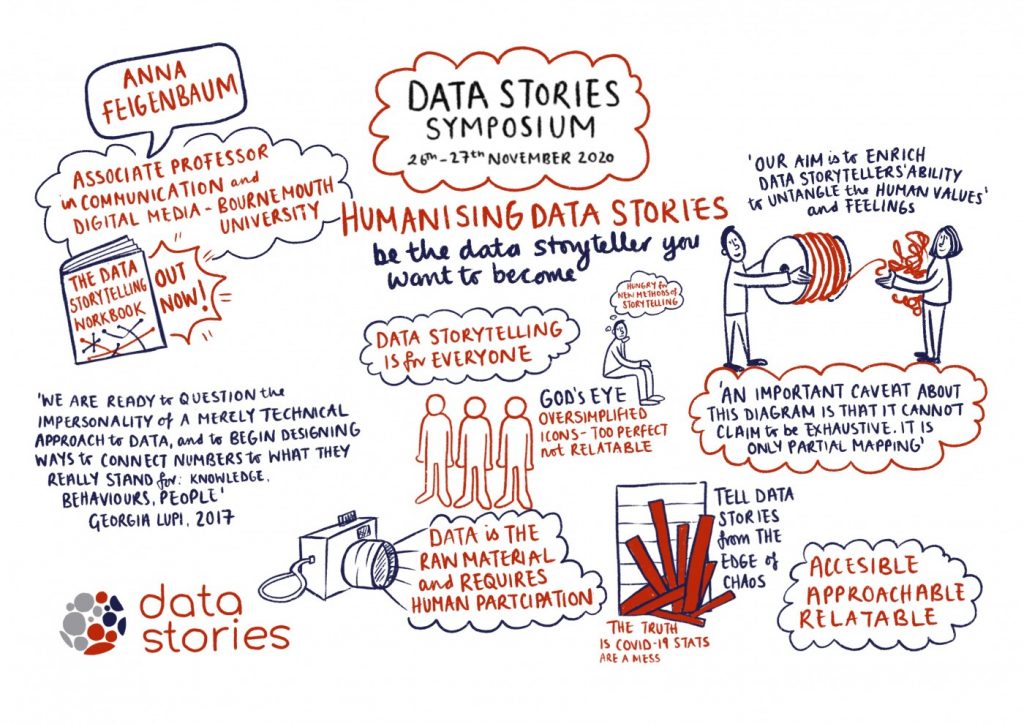


 Thank you to those who attended the IMSET launch last week. We hope that you now have a better idea of who we are and what we are aiming to do.
Thank you to those who attended the IMSET launch last week. We hope that you now have a better idea of who we are and what we are aiming to do.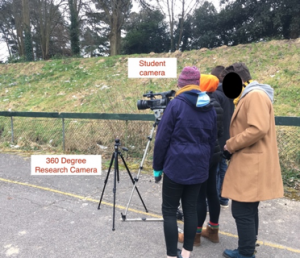

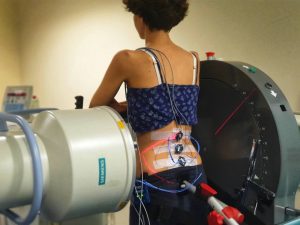 healthy adults. This is the biggest study of its kind and those who volunteer for this research study will get the chance to see their spine move in real-time.
healthy adults. This is the biggest study of its kind and those who volunteer for this research study will get the chance to see their spine move in real-time.

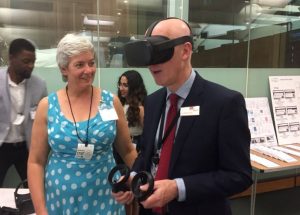
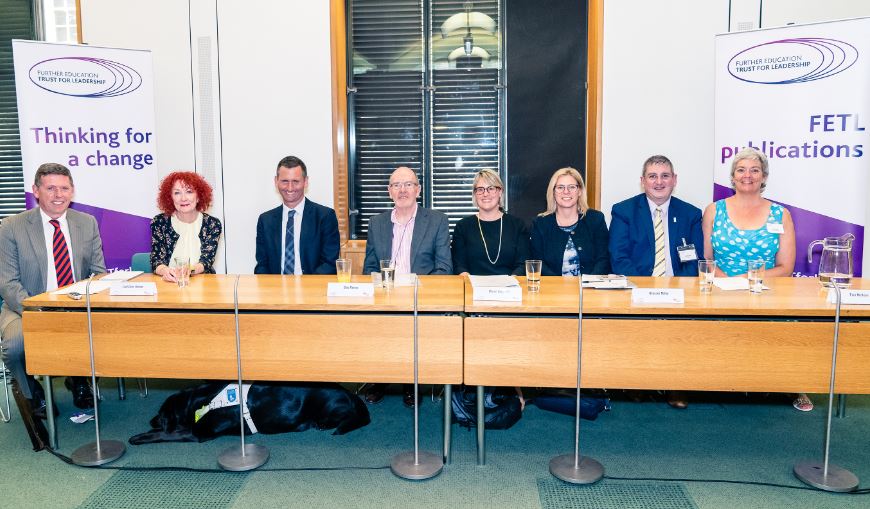

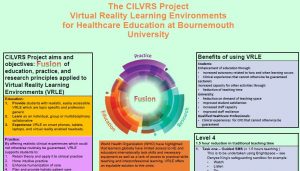











 Nursing Research REF Impact in Nepal
Nursing Research REF Impact in Nepal Fourth INRC Symposium: From Clinical Applications to Neuro-Inspired Computation
Fourth INRC Symposium: From Clinical Applications to Neuro-Inspired Computation ESRC Festival of Social Science 2025 – Reflecting back and looking ahead to 2026
ESRC Festival of Social Science 2025 – Reflecting back and looking ahead to 2026 3C Event: Research Culture, Community & Cookies – Tuesday 13 January 10-11am
3C Event: Research Culture, Community & Cookies – Tuesday 13 January 10-11am Dr. Chloe Casey on Sky News
Dr. Chloe Casey on Sky News ECR Funding Open Call: Research Culture & Community Grant – Application Deadline Friday 12 December
ECR Funding Open Call: Research Culture & Community Grant – Application Deadline Friday 12 December MSCA Postdoctoral Fellowships 2025 Call
MSCA Postdoctoral Fellowships 2025 Call ERC Advanced Grant 2025 Webinar
ERC Advanced Grant 2025 Webinar Horizon Europe Work Programme 2025 Published
Horizon Europe Work Programme 2025 Published Update on UKRO services
Update on UKRO services European research project exploring use of ‘virtual twins’ to better manage metabolic associated fatty liver disease
European research project exploring use of ‘virtual twins’ to better manage metabolic associated fatty liver disease